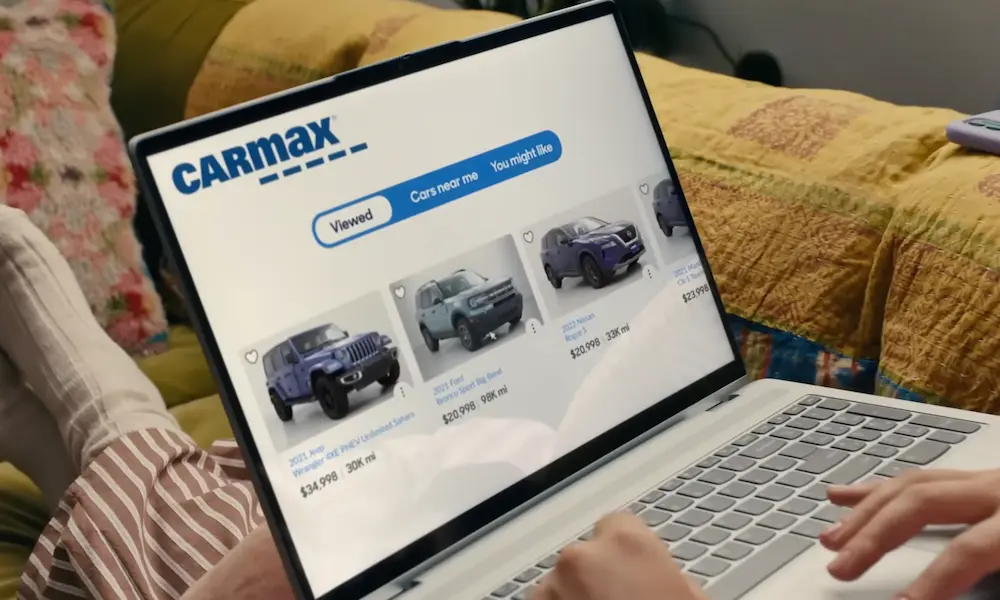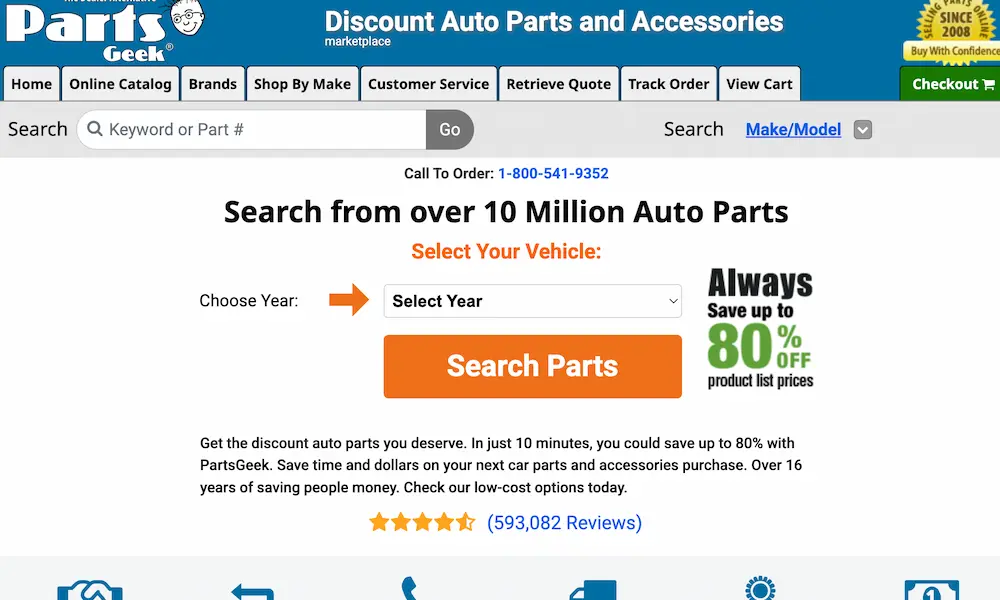Moving to Pennsylvania and buying a car is a big step. You need a valid driver’s license and the right paperwork to register your car in Pennsylvania. If you’re an out-of-state buyer, knowing the steps can save you time and hassle. Dive into this guide to make your car buying process smooth and stress-free. Your journey to owning a car in Pennsylvania starts here.
Steps for Buying a Car Out of State
When buying a car from out of state, you’ll need careful planning and research. This includes choosing the right car, checking its history, and understanding tax obligations.
Selecting Your Vehicle
Start by selecting the car you want to buy. Consider both personal preferences and practical needs. Look for cars that match your requirements in terms of model, color, features, and fair market value. Check trusted websites for out-of-state dealers.
Communicate with the dealer to arrange a visit and test drive. Make sure to discuss any extra fees that might come with buying from out of state. Always review pictures, and ask for up-to-date information on the vehicle’s condition.
Conducting a Vehicle History Check
Before finalizing any purchase, conduct a vehicle history check. Use the vehicle identification number (VIN) to get a detailed report. This history report will tell you if the car has been in any accidents, its previous ownership, and mileage verification. Websites like CARFAX offer comprehensive vehicle history reports.
Also, look for any recalls on the car. Ensure that all necessary repairs have been done. A clean vehicle history report can save you from future headaches.
Understanding Sales and Use Tax Obligations
When buying a car out of state, you’re responsible for paying sales tax in your home state. Verify Pennsylvania’s tax rate and rules for out-of-state vehicle purchases. The dealer may not collect sales tax if you’re buying the car to take it out of state, but you’ll need to pay it when you register the car in Pennsylvania.
Pennsylvania requires you to register the car and transfer the title through the Pennsylvania Department of Transportation (PennDOT). Be prepared with all necessary documentation and receipts showing the purchase price and any taxes paid. Visit PennDOT’s website for specific guidance on title transfers and registration.
The Essential Paperwork
When buying a car in Pennsylvania from out of state, it’s important to have all the required paperwork ready. This ensures a smooth process for both title and registration and helps avoid any legal issues.
Gathering Necessary Documents
You need several key documents to register your car in Pennsylvania. First, you’ll need the certificate of title from the previous owner, which serves as proof of ownership. Ensure the title is signed correctly by both the seller and you.
A bill of sale is also important. This document includes the seller’s details, your information, and the sale price. Additionally, note the odometer reading on the bill of sale to meet state requirements.
If there’s a lien on the vehicle, the lienholder’s details must be included. These documents may require a notary stamp, so it’s essential to check local rules.
Filling Out Form MV-1 for Title and Registration
Pennsylvania requires you to fill out Form MV-1 to apply for title and registration. This form asks for your personal information, vehicle details, and insurance information.
Make sure all sections are completed accurately. Incomplete or incorrect forms can delay the process. You’ll need to provide certificates of title along with Form MV-1. This helps verify that you’re the legal owner of the vehicle.
Submit the form and documents to a PennDOT office. Don’t forget to pay any required fees. It’s helpful to call ahead and confirm all necessary details before your visit.
Handling Liens and Lenders
If the car you’re buying has a lien, you need the lienholder’s information. The lien should be listed on the title. If the car is still financed, you may need to satisfy the lien before the transfer can proceed.
Contact the lienholder for the specific steps. Sometimes, the lienholder will send the title directly to PennDOT after the lien is satisfied.
Your lender may also need to complete additional paperwork. This ensures the lien is properly recorded and the process moves smoothly. Always check with both your lender and PennDOT to ensure all requirements are met.
Titling and Registering Your New Vehicle
When buying a car from out of state and bringing it to Pennsylvania, you’ll need to handle both titling and registering the vehicle. It’s important to complete these steps properly to ensure you can legally drive your new car.
Application for Pennsylvania Title
To apply for a Pennsylvania title, you’ll need to visit a PennDOT agent or a local DMV office. Bring your out-of-state title, proof of insurance, and ID. If your car is financed, the title will be sent to your lienholder.
You’ll need to fill out Form MV-1, which is the title application form. Make sure all information matches what’s on your out-of-state title. The fee for titling a vehicle in Pennsylvania is $55. If there’s a lien on the vehicle, lien recording fees will also apply.
Registering Your Vehicle with PennDOT
After applying for a title, you need to register your vehicle with PennDOT. The registration fee for a passenger vehicle is $38, and for a motorcycle, it’s $20. You’ll also need to pass a vehicle inspection and emission test if relevant.
Ensure you have your proof of insurance and identification. Visit a PennDOT agent or DMV office to complete the process. Fill out the necessary forms and pay the registration fee. Once done, you’ll receive your Pennsylvania license plate and registration card.
Insurance and Legal Considerations
When buying a car in Pennsylvania from out of state, two crucial elements you need to address are securing car insurance and ensuring all documents are properly transferred and notarized. Understanding these details will make your car buying experience smoother.
Securing Car Insurance
Before driving your new car in Pennsylvania, you need to have proof of insurance. Pennsylvania law requires all drivers to carry minimum liability coverage. When purchasing a vehicle from out of state, you should contact an auto insurance provider to set up a policy.
Ensure the policy meets Pennsylvania’s requirements. This includes coverage for bodily injury, property damage, and medical benefits. An efficient way to secure insurance is to have your motor vehicle dealer assist you. They often have partnerships with insurance companies and can help you get the required proof of insurance quickly.
Remember, you can’t register your car in Pennsylvania without valid insurance. Verify that your chosen insurance meets state laws. Carrying proof of insurance in your vehicle at all times is also a good practice.
Transfer and Notary Services
Transferring car ownership to Pennsylvania involves proper documentation and the services of a notary public. You will need the out-of-state title, proof of insurance, and a completed Form MV-1 (Application for Certificate of Title).
If your vehicle has a lien, you should contact PennDOT’s Call Center to request a letter be sent to your lienholder. Additionally, the MV-1 form must be submitted only after PennDOT receives the out-of-state certificate of title.
A notary public will be essential in this process. They will witness the signing of documents, ensuring everything is legally binding. Make sure all documents requiring a signature, such as the title transfer, are notarized. In some cases, the notary should also verify the odometer reading.
Handling these details carefully will help you avoid legal issues and ensure a smooth transition.
Fees and Taxes Associated with Car Buying
When buying a car in Pennsylvania from out of state, you need to be aware of sales tax laws and various fees. It is important to calculate these costs accurately to avoid surprises during the purchasing process.
Understanding Pennsylvania Sales Tax Laws
In Pennsylvania, the standard sales tax is 6% of the car’s purchase price or its current market value. Cities and counties might impose additional taxes. For example, Allegheny County adds a 1% local tax, while Philadelphia imposes an extra 2%.
The Department of Revenue oversees these taxes. If the car is a gift, you might be able to claim an exemption using specific forms, such as Form MV-1 or MV-4ST. Make sure all paperwork is completed and submitted properly for these exemptions.
Calculating Fees and Taxes
Besides the sales tax, you will have to pay various fees when buying a car. This includes the title fee, which varies slightly depending on whether the vehicle is new or used. Additionally, registration fees are required, and these fees are based on the weight and type of your vehicle.
To get a ballpark figure, if your car costs $25,000, you can expect a 6% sales tax, adding up to $1,500, plus any city or county taxes. Don’t forget other fees, like the title and registration fees. For a detailed breakdown, refer to the relevant Pennsylvania Car Sales Tax & Fees.
Properly understanding and calculating all associated fees will help ensure a smooth car-buying experience.
After the Purchase: Temporary Tags and Safety Measures
After you buy a car in Pennsylvania from out of state, it is important to handle registration and safety inspections promptly. You’ll need to get temporary tags and take necessary safety and emission tests to ensure your car is roadworthy.
Obtaining Temporary Registration and Tags
When you purchase a car, you must obtain temporary registration and tags to legally drive it. To do this, you need a valid Pennsylvania driver’s license or ID, proof of car insurance, and the car’s title. Visit a DMV or an authorized agent to complete this process.
Temporary tags are usually valid for 90 days. This gives you plenty of time to complete all required paperwork. The cost for these temporary tags can vary, so it’s wise to check with your local DMV for current fees.
Having these temporary tags ensures you comply with state laws while you handle the final registration. Once you have your temporary tags, keep all documents handy in your vehicle for easy access if needed.
Completing a Safety Inspection and Emissions Testing
After obtaining your temporary tags, the next step is to complete a safety inspection and emissions testing. Pennsylvania law mandates that all vehicles pass these inspections to be legally driven on state roads.
The safety inspection checks crucial elements like brakes, tires, lights, and other vital components to confirm they are in working order. This makes sure your vehicle is safe to operate and minimizes the risk of accidents.
Emissions testing ensures that your car meets environmental standards for pollution control. If you bought your car from out of state, it might not comply with Pennsylvania’s stricter emission standards, making this test essential.
Take your vehicle to a certified inspection station. Both tests are relatively quick, but it’s best to make an appointment to avoid long waits. Once your car passes, you’ll receive inspection stickers that show you’re compliant with state requirements.














